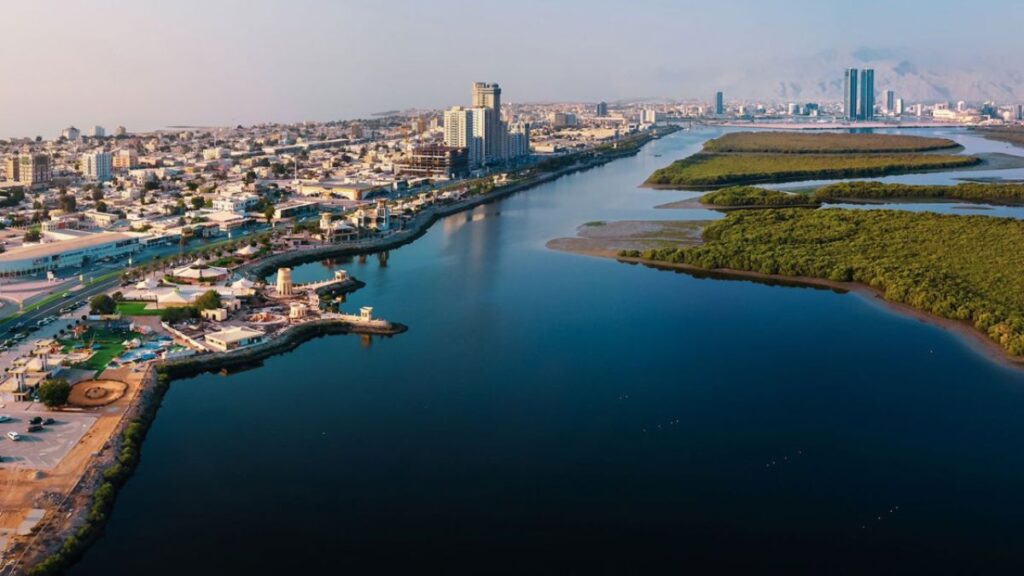How will tourism industry change after the pandemic?
While the coronavirus pandemic is affecting virtually every aspect of our lives, it’s hitting the tourism industry particularly hard. The travel industry, which satisfies our sense of wanderlust and makes the world a smaller place, is also a major employer, accounting for 10 per cent of global GDP prior to the outbreak.
Now that the world has been brought to a standstill, and some 50 million jobs are at stake, what will happen to the tourism industry in the future?
Airlines
The airline industry has been another major casualty of the COVID-19 pandemic. In an effort to stop the spread of the virus, international borders have been closed and countless planes now sit empty on the tarmac.
With many airlines seeking government assistance and bailouts, the question is: When will people start flying again? In the long term, it may take a vaccine to inspire consumer confidence. In the meantime, those airlines that do manage to stay afloat will likely operate at a 25- to 30-per-cent capacity, serving mainly domestic markets.
Cruises
One of the first sectors in the travel industry to be hit was cruise lines. Even before the coronavirus pandemic, cruise ships were known for spreading illnesses, like noroviruses, because of the large number of people living in close quarters.
And yet, according to a recent poll by cruisecritic.com, as reported by Global News, “75 per cent of people plan to book cruises at the same rate as before once the coronavirus outbreak is over.” To ensure consumer confidence, however, the industry will need to up its game, especially when it comes to cleaning measures and hygiene protocols.
Social-distancing rules
Will airlines and cruise ships be able to comply with social-distancing rules while still staying afloat financially? The International Air Transport Association (IATA) recently came out against leaving middle seats empty on aircraft as airlines would not be able to make money that way. Cruise ships would also have to “sail with a reduced payload” in order to comply with social-distancing rules—no more pool parties or buffets!
Private planes
For those with deep pockets, private jets for rent is going to look like the better choice in terms of health, but also in terms of simply getting from A to B. With airlines cutting up to 90 per cent of their flights in the short to medium term, there are simply fewer options.
Hotels
The hotel industry has also been shaken to its core by the pandemic. With countless hotel rooms sitting empty, many are being used to house and treat the homeless to prevent further coronavirus outbreaks.
With certain government restrictions being lifted in UAE including Ras Al Khaimah, some are cautiously optimistic that occupancy rates will start to bounce back over the summer.
Ras Al Khaimah Tourism Development Authority (RAKTDA) is working closely with the Emirate’s Public Service Department (PSD), to create a certification program aimed at the Emirate’s hospitality providers. The certification process will be determined by a series of measures targeted at the various hotel departments and an official assessment, once in the recovery phase of the COVID-19 outbreak.
Business travel
Business travel, which is a big piece of the travel pie, will likely take a long time to rebound as companies face their own financial hurdles and turn to videoconference instead. Hotels likely won’t be hosting any large-scale meetings and conventions until 2021 or even 2022.
Staycations
It seems that, at least in the short term, the staycation may be the coronavirus trend as many travel restrictions remain in place and consumer confidence wavers. This summer, get ready for backyard camping, BBQing, and exploring local parks, beaches and deserts
Road trips
Another option for places like UAE that is starting to lift local travel restrictions is to take a local road trip to nearby emirates (what better than RAK). Hotels that have seen their international customer base dry up are turning to locals for support. As people cancel their big summer vacation plans, they might be looking to spend a night or two away from home at a destination they can drive to rather than hopping on a plane.
The great outdoors
After months of being cooped up, and with close quarters still cause for health concerns, heading outdoors may seem like the best travel idea, at least in the short term. Until there’s a vaccine, people may be shying away from group tours, especially in enclosed spaces like tour buses. But there’s nothing stopping people from hiking, biking, camping, and kayaking in the great outdoors, far from crowds. All marks to Ras Al Khaimah
Immunity passports
The situation is changing day by day, and some wonder if travellers will soon need to carry COVID-19 passports proving their health status. However, the World Health Organization cautions that “there is currently no evidence that people who have recovered from COVID-19 and have antibodies are protected from a second infection.”
Who will be able to afford to travel?
With staggering job losses due to coronavirus shutdowns and the global economy in freefall, who will be able to afford to travel once restrictions are lifted? Those who still have jobs may have reduced hours or simply feel uncertain about their financial stability and are therefore less likely to spend money on non-essentials. Recovery for the tourism industry will likely depend on a larger economic recovery.
Youth might lead the travel industry rebound
Young people are believed to be less at risk of developing severe COVID-19 symptoms. According to an article in the New York Times, this could mean they have a lower level of “travel anxiety” than their elders. In the early days of the pandemic, young people were taking advantage of cheap flights. Does that mean they’ll be more likely to travel as restrictions are loosened? Only time will tell.
Travel agents might make a comeback
In the internet era, most people book their own vacations online, while travel agents focus primarily on luxury and business clients. In the age of coronavirus, travellers may once again turn to agents for help navigating constantly shifting health updates and warnings as well as assistance with complicated cancellation and refund policies and travel insurance.
Tour operators
While the days of big tour buses packed with passengers probably won’t be coming back anytime soon, tour operators and guides who are willing to get creative may still be able to operate, just at a lower capacity. After restrictions are lifted and people venture out again, travellers will likely be seeking private, personalized tours or holidays organized for small groups.












